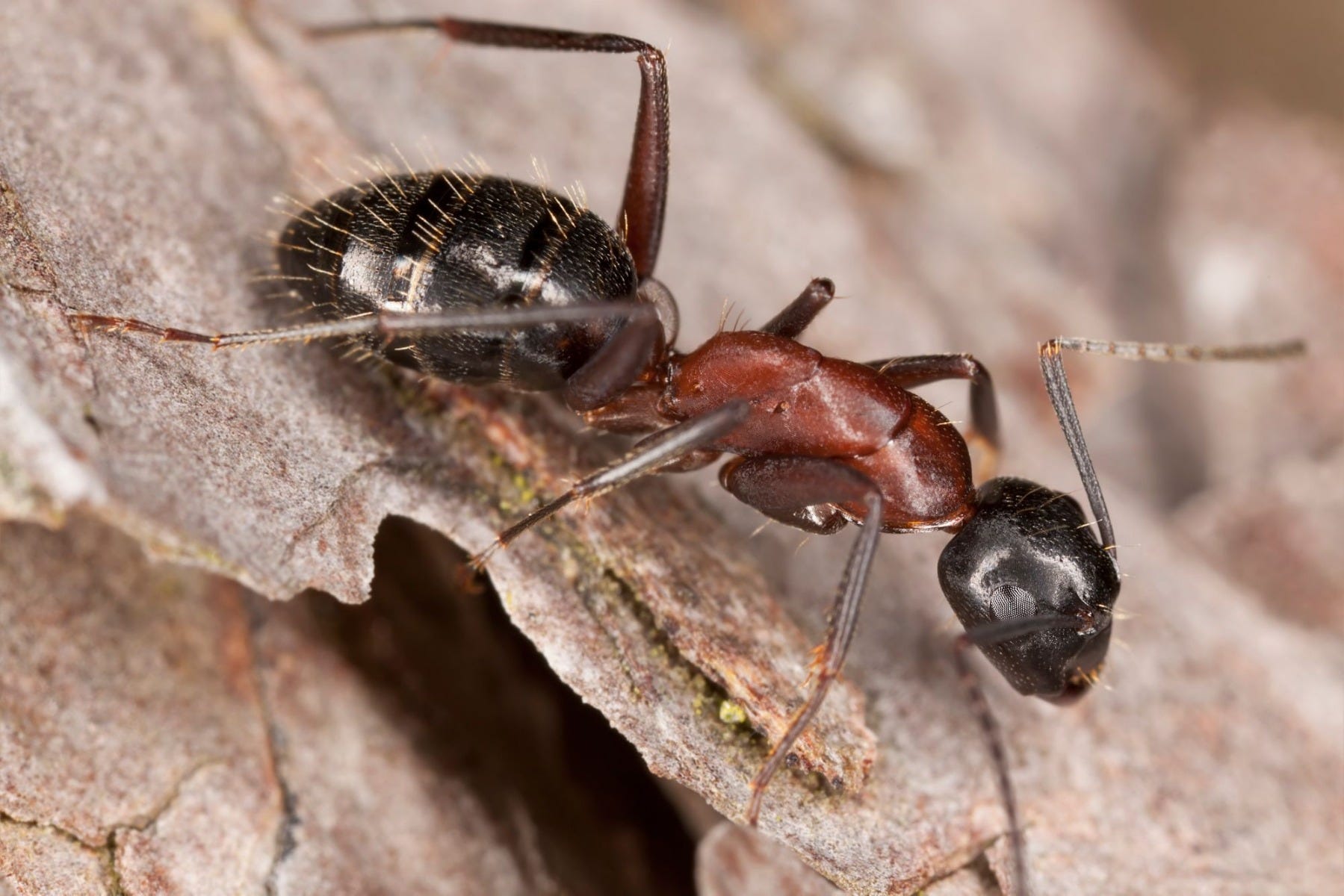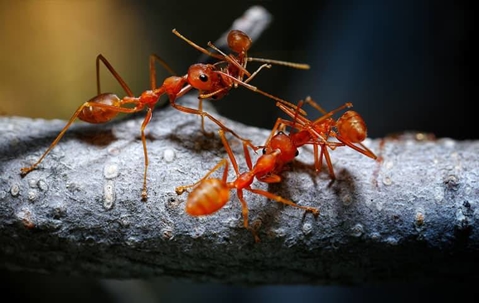Leading Ant Control Services: Trusted Solutions for Your Home or Company
Leading Ant Control Services: Trusted Solutions for Your Home or Company
Blog Article
Environmental Influence of Bug Control: Balancing Effectiveness With Sustainability
The environmental influence of parasite control is a critical problem that calls for a delicate equilibrium between achieving efficiency in handling parasites and guaranteeing sustainability of our ecosystems. From the use of dangerous chemicals that permeate into our soil and water to the unintended consequences on non-target types, the repercussions of conventional insect control methods are significant.
Dangerous Chemicals in Bug Control
The application of damaging chemicals in insect control positions considerable environmental and health and wellness dangers that require mindful factor to consider and mitigation techniques. Pesticides, pesticides, and herbicides are generally used to eliminate insects, but their widespread application can lead to unintentional consequences. These chemicals can infect dirt, water sources, and the air, impacting not only the targeted pests yet additionally beneficial pests, wild animals, and people.

To resolve these threats, incorporated bug administration (IPM) methods are being advertised as a much more sustainable choice. IPM entails a mix of approaches such as organic control, habitat control, and the targeted use chemicals as a last resource (ant control durham nc). By taking on an all natural technique to pest control, we can lessen the ecological and wellness effects associated with harmful chemicals while properly taking care of pest populations
Influence On Non-Target Species
Considering the unintentional consequences of parasite control techniques, the influence on non-target varieties is a critical facet that needs extensive evaluation. While bug control steps aim to target details bugs, various other organisms in the ecological community may be inadvertently impacted. Non-target varieties, including advantageous pests, birds, mammals, and also plants, can endure direct or indirect injury from pesticide applications or biological control techniques.
Pesticides can have sub-lethal or deadly effects on non-target types. Pesticides developed to battle a certain insect bug may hurt pollinators like or all-natural killers such as ladybugs. Additionally, chemical residues can gather in the atmosphere, affecting non-target organisms gradually. Biological control agents, if not species-specific, can position dangers to unplanned targets, disrupting the eco-friendly balance.
To minimize the impact on non-target species, integrated insect monitoring (IPM) approaches that highlight an all natural technique to pest control are recommended. These techniques focus on making use of ecologically pleasant methods, reducing damage to valuable microorganisms while properly taking care of pest populations. Conducting extensive risk assessments and keeping an eye on the results of bug control efforts are essential action in safeguarding non-target varieties and promoting total community wellness.
Soil and Water Contamination
Unplanned environmental consequences of pest control methods expand beyond impacting non-target species, with considerable implications for dirt and water contamination. Chemicals, herbicides, and chemical plant foods used in parasite control can seep right into the soil and infect groundwater, presenting a risk to both marine and earthbound ecological communities. Dirt contamination can disrupt the equilibrium of microorganisms important for vitamins and mineral cycling and plant development, leading to lowered soil fertility and performance. These chemicals can continue in the setting for extended periods, gathering in the soil and potentially getting in the food chain.
Water contamination is another important concern connected with pest control methods. Drainage from farming areas treated with chemicals can bring these chemicals right into neighboring water bodies, influencing aquatic organisms and water quality. Pollutants in water resources can have far-ranging effects, influencing not just marine life but also human health through the consumption of contaminated water or aquatic microorganisms. To mitigate dirt and water contamination from parasite control tasks, incorporated insect administration approaches that focus on sustainability and lessen chemical inputs are crucial.
Air Air Pollution From Chemical Use
Direct exposure to air-borne pesticides throughout agricultural applications presents a significant problem for air contamination control actions. In addition, pesticide drift, where chemicals are brought by the wind to unplanned locations, can lead to the contamination of nearby ecological communities and water bodies.

Approaches for Sustainable Insect Control
In the realm of agricultural methods, implementing sustainable bug control approaches is critical for keeping eco-friendly equilibrium and guarding crop yields. Sustainable insect control highlights using eco-friendly approaches to take care of pest populations effectively while reducing damage to non-target organisms and environments. Integrated Parasite Administration (IPM) is a commonly embraced technique that integrates biological, cultural, physical, and chemical control methods to accomplish long-lasting insect management solutions.
Plant turning and diversification are also reliable methods to disrupt pest life cycles and create Going Here much less positive conditions for insects to prosper. Inevitably, by incorporating these sustainable insect control strategies, farmers can attain a balance in between pest administration performance and environmental stewardship.
Conclusion
Finally, the environmental influence of insect control approaches should be thoroughly considered to stabilize effectiveness with sustainability. Hazardous chemicals utilized in parasite control can result in dirt and water contamination, air pollution, and harm non-target types - termite control. It is crucial to carry out lasting insect control methods to lessen these adverse effects on the atmosphere and promote a much healthier community for future generations
By embracing a holistic approach to pest control, we can reduce the environmental and health and wellness effects connected with dangerous chemicals while effectively managing pest populations.

To reduce the air contamination caused by chemical use, it is essential to take on integrated bug management methods that prioritize the usage of non-chemical insect control approaches, such as crop rotation, all-natural predators, and immune crop selections. Sustainable insect control emphasizes the use of eco friendly approaches to take care of parasite populations efficiently while minimizing damage to non-target microorganisms and ecosystems. Integrated Bug Monitoring (IPM) is a widely embraced strategy that integrates organic, social, physical, and chemical control methods to accomplish lasting parasite management options.
Report this page